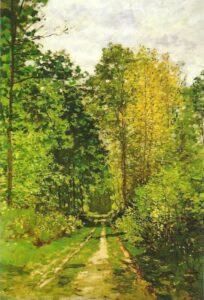Jesus asks of his disciples “Who do you say that I am?”
What I find immediately intriguing is that the Gospel writer, Mark, only records the answer that Peter gave!
The assumption is that Peter was answering for all of them.
But, was he?
Who gave him permission to do so?
Surely as grown men, able to answer for themselves!
That may well be the crux of the whole story – namely, have I been using the answers of another or others and very subtly avoiding answering the question myself.
“Who do you say I am?” is addressed to me personally; only I can answer for myself.
Or, need I answer at all?
The German poet Rainer Maria Rilke has a fascinating little book titled, Letters to a Young Poet.
At the heart of the book is an aspiring young poet’s request to Rilke to let him know whether he (the young poet) ought to be a poet or not.
The young poet is insistent. At one point Rilke writes
“ . . . . I want to beg you, as much as I can, dear sir, to be patient toward all that is unsolved in your heart and try to love the questions themselves like locked rooms and like books that are written in a very foreign tongue. Do not seek the answers, which cannot be given to you because you would not be able to live them. And the point is, to live everything. Live the questions now. Perhaps you will then gradually, without noticing it, live along some distant day into the answer. Perhaps you do carry within yourself the possibility of shaping and forming as a particularly happy and pure way of living; train yourself to it – but take whatever comes with great trust, and if only it comes out of your own will, out of some need of your inmost being, take it upon yourself and hate nothing.”
Perhaps Rilke’s advice is advantageous for us, given the question in today’s Gospel ‘try to love the question’ – who do you say I am; ‘Live the question’ – who do you say I am?; and live along some distant day into the answer.
Rilke’s final words of advice to the young man, perhaps had been written for us “and after all I do want to advise you to keep growing quietly and seriously throughout your whole development; you cannot disturb it more rudely than by looking outward and expecting from outside replies to questions that only your innermost feeling in your most hushed hour can perhaps answer.”
This weeks image is an oil on canvas from the artist Claude Monet, titled “Path In The Forest”, painted in 1868 and held in a private collection.
What I find of interest and worth reflection is the title itself.
The title does not say, a path ‘through’ the forest, as if it is an access route in and out. Rather the title says a path ‘in’ the forest – a path to take while ‘living’ and ‘loving’ the question!

